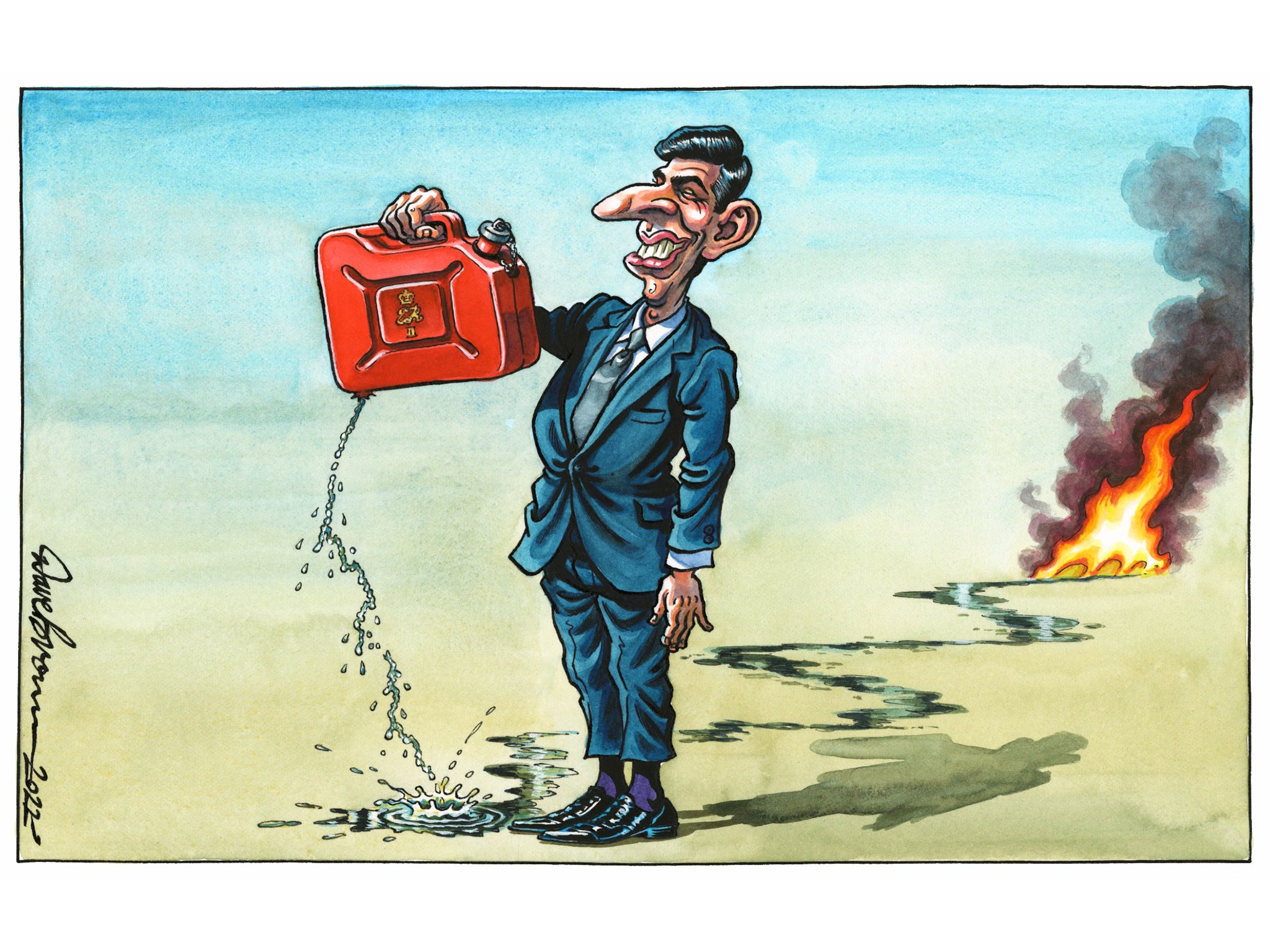Rishi Sunak could have protected the most vulnerable – but he didn’t
Editorial: Delivering his spring statement, the chancellor’s income tax cut for 2024 felt very much like a pre-announced, pre-election attempt to bribe voters with their own money

Rishi Sunak – the first chancellor of the exchequer with an Instagram account – likes to project a modern, upbeat sort of image. His self-image, painted vividly in his Mais lecture and again in the spring statement is, that of a man on a mission to cut taxes and boost Britain’s sluggish rates of economic growth.
In his office Mr Sunak has a picture of Nigel Lawson, a great reforming chancellor for most of the 1980s, who was proud of his record of abolishing at least one kind of tax every year. No more than any other politician, he is reluctant to admit to mistakes and failures, and unwilling to confront the voting public with the truth. A cut in the basic rate of income tax scheduled for 2024 will be too little too late to help families in 2022, and for those not in work it will be irrelevant whenever it turns up.
It feels very much like a pre-announced, pre-election attempt to bribe voters with their own money.
Thank goodness (or George Osborne, whose idea it was) for the Office for Budget Responsibility (OBR), which has presented hard economic truths in unvarnished form for more than a decade. The brutal truth is that 2022 will be the toughest year for living standards since the dawn of rock’n’roll. The OBR puts it as the most painful squeeze since 1956, when records began (and thus very possibly since the Second World War). We are not nearly through the worst of it, either.
Notwithstanding the relatively modest changes announced by the chancellor, there will be few – if any – in the country able to avoid the coming hits to disposable incomes. A hike in national insurance (albeit smaller) on employees and employers; frozen income tax thresholds for the next four years; the Bank of England on a course of raising interest rates – meaning higher mortgage costs and more expensive finance for business; and a continuing rise in global commodity prices. Meanwhile, gas, electricity and food bills are higher and general inflation is heading to double figures and a 40-year high.
Most families would need something in the order of a 10 per cent wage rise just to stand still and cope with the triple whammy of tax hikes, inflation and mortgage costs.
To a large degree, there is little that any government can do in the face of such overwhelming global forces as are now making themselves felt, although Brexit adds uniquely in the UK to the difficulties thrown up by Covid and war in Ukraine.
But every government has the option of protecting the most vulnerable in society, and Mr Sunak, despite his polite and kindly manner, has failed to do this in the most spectacular fashion.
There was no help at all in the statement for those who rely on social security to survive, including those on the state retirement pension and children in poverty. They will in fact be faced with something like a 5 per cent real-terms cut in their incomes, such has been the speed at which inflation has been accelerating.
For the low paid, the increase in the national insurance threshold will help a little, as will the cut in fuel duty for those able to run a car. But the basic flaw in paying for social care via national insurance rather than income tax remains – landlords and those drawing significant income from investments will make no additional contribution. The cut of £20 a week in universal credit is made permanent. The chancellor could scarcely have constructed a more unfair method of paying for social care if he tried.
To keep up to speed with all the latest opinions and comment sign up to our free weekly Voices Dispatches newsletter by clicking here
He also missed the opportunity to present a plan for green growth. Adjusting VAT on energy-saving materials is obviously better than leaving them where they are, but £1,000 off the cost of solar panels for those able to afford them won’t prevent another substantial increase in fuel poverty this year.
Labour is right to argue for a green growth plan, and it is striking that Cop26 and net zero were not mentioned once by the chancellor in his speech. Reducing fuel duty is a measure that will help those with bigger cars most, and if the chancellor wanted to protect poorer families he could have reduced income tax and raised universal credit. The polluter should still pay, even in circumstances such as this.
One long-term contribution to boosting living standards, reducing fuel poverty and the cost of energy would be a dramatic acceleration in the transition to renewable energy sources, and away from increasingly costly and volatile fossil fuel suppliers like Russia. Energy security, economic growth and higher living standards all point towards greener, cleaner growth.
Even in the middle of a global crisis – indeed especially in such a situation – the chancellor could have done much more.






Join our commenting forum
Join thought-provoking conversations, follow other Independent readers and see their replies
Comments